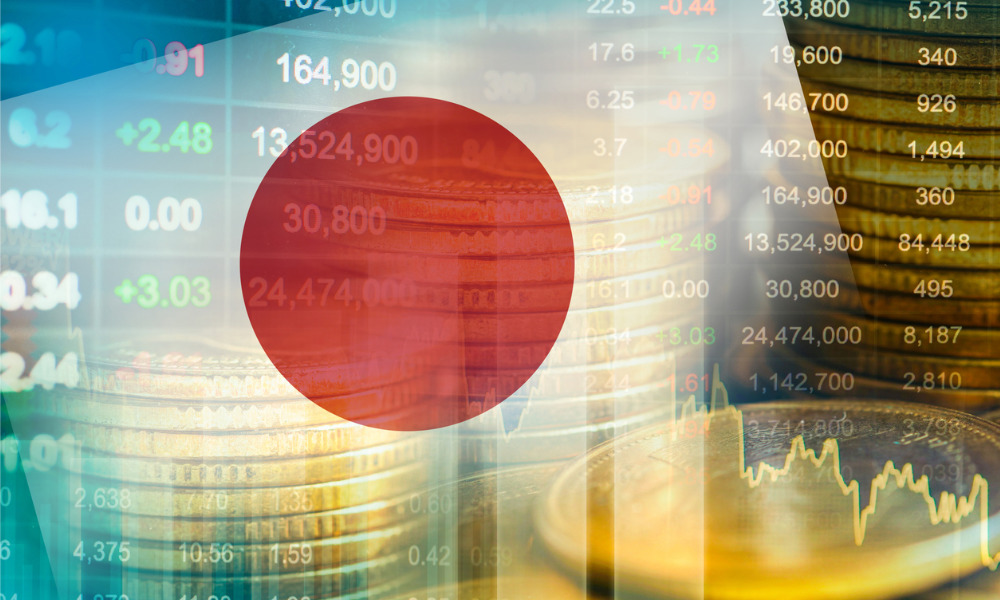

Is now the time for advisors to get big, or perhaps bigger, in Japan?
A 13% drop in the Japanese yen year to date has helped fuel an impressive run in Japanese stocks so far in 2023. The widely held, non-hedged iShares MSCI Japan ETF, for instance, has returned over 14% since the start of the year, while the iShares Currency Hedged MSCI Japan ETF is up a gobsmacking 36%.
Aside from the weakening currency, which boosts not only Japan’s exports but also its tourism industry, Japanese equities were also blessed by Berkshire Hathaway CEO Warren Buffett last spring when he visited the country and announced he was raising his stakes in five of its top trading houses to 7.4%. The firms are Misubishi Corp., Mitsui & Co., Itochu Corp., Marubeni and Sumitomo.
The so-called "Oracle of Omaha" first acquired stakes in these firms in August 2020, in an initial purchase worth about $6 billion.
Neil Hennessy, CEO of Hennessy Advisors, says owning Japanese stocks with the yen trading around 150 to the dollar should be an easy and obvious trade because of the effect on the price of Japanese goods. The non-hedged Hennessy Japan Fund is up almost 17% thus far in 2023.
“How can you not buy quality products at a cheap price? That's just a given,” Hennessy said. “If you miss that trade, then you shouldn't be investing at all.”
From a macro perspective, Masa Takeda, portfolio manager for the Hennessy Japan Fund, added that signs of sustainable inflation — a positive in Japan, unlike in the U.S. — are finally evident in the country. Moreover, from a corporate level, Takeda said Japanese companies are “striving for better labor productivity” and will “introduce more merit-based compensation systems in order to push through continued wage hikes.”
Robert Pearl, co-founder and wealth advisor at G&P Financial, likes the fact that Japan is a “massive, developed economy with a lot of innovation,” as opposed to an emerging market nation, which he views as more risky heading into 2024.
Pearl says his two preferred international investments are iShares Core MSCI Total International Stock ETF, which has about 15.5% of its assets in Japanese stocks, and the Schwab International Equity ETF, which has a larger allocation of around 21.7%.
Despite the amazing stock run in land of the rising sun, Brandon Opre, financial advisor at TrustTree Financial, has no plans to jump in now because he believes that “chasing performance” is usually a losing proposition.
“I have all my clients in some international exposure, including emerging markets, the broader EAFE and Asia ETFs, but not specifically targeting any one country over another,” Opre said.
Eric Amzalag, CEO and founder of Peak Financial Planning, believes that the huge 2023 advance in Japanese equities means there will be less potential gains going forward. In his view, Japan won't be a lucrative investing destination until there is a correction.
“Investing heavily there at the moment would be a performance-chasing exercise. Basically the window was missed until there is some sort of correction,” Amzalag said.

Relationships are key to our business but advisors are often slow to engage in specific activities designed to foster them.

Whichever path you go down, act now while you're still in control.

Pro-bitcoin professionals, however, say the cryptocurrency has ushered in change.

“LPL has evolved significantly over the last decade and still wants to scale up,” says one industry executive.

Survey findings from the Nationwide Retirement Institute offers pearls of planning wisdom from 60- to 65-year-olds, as well as insights into concerns.
Streamline your outreach with Aidentified's AI-driven solutions
This season’s market volatility: Positioning for rate relief, income growth and the AI rebound
